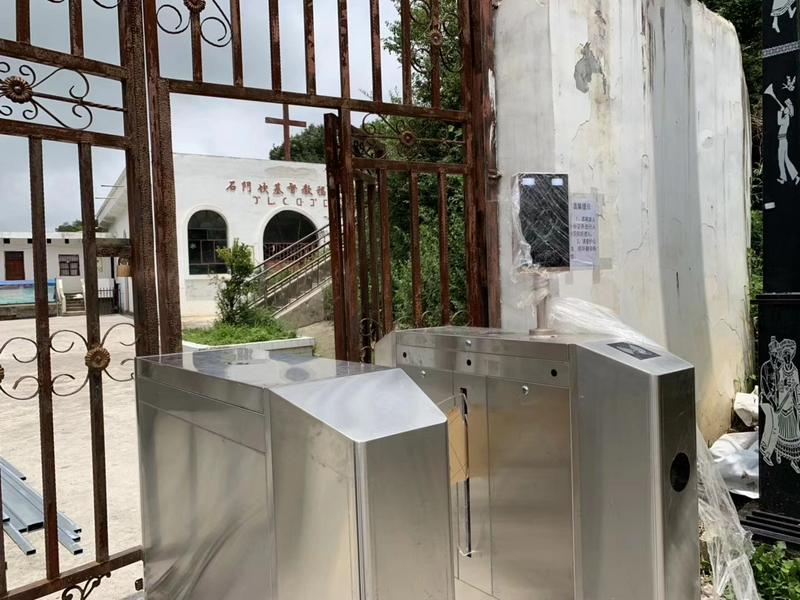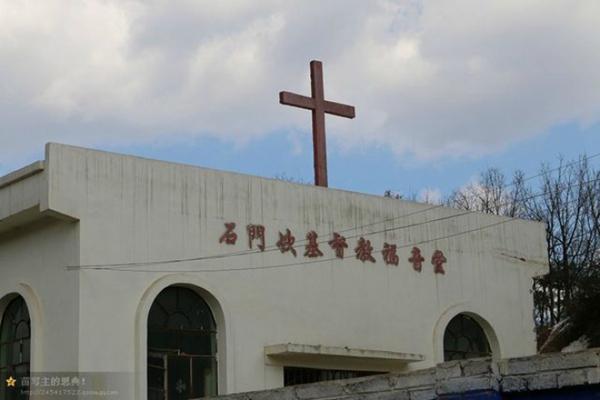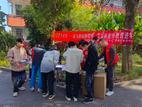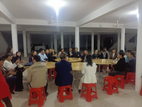Recently a high technology device warns whoever wants to enter a historical church in southwestern China to have his or her face scanned.
Moreover, the Gospel Church in Shimenkan where the famous British missionary Samuel Pollard preached is just open for some hours on Sundays and forbids minors from entering.
Last July, a pastor from the southwest who went to visit the church found that facial recognition was mandatory to enter in.
According to the photo shared by him, a reminder note was posted near a facial scan machine at the entrance, saying that people must have their identity cards and faces recognized for entry. He added that these rules were started in June 2019.
Asked what opinions the local workers held, he only replied, "the local church had no alternative choice."
A believer also felt that she could do nothing about it. She said the church was usually closed and only opened at 11 am on Sundays. Believers were required to undergo "facial recognition" before attending services. At 3 pm, it was closed again.
"We locals must take our identity cards along to attend the church for Sunday services, let alone strangers," she added.
Those believers who needed to take care of their children could not attend the church but read the Bible and prayed at home. "Children were forbidden into the church."
In the past two years there were regular evening services, but not anymore. The highest Sunday attendance is now around 100, while before it was more than 300.
She said, "Since 2019, monthly attendance is less and less."
In early October, similar biometric devices were also installed in Muyang Church in Huangshi, Hubei, but facial recognition was voluntary. The head of the church said that it was used to get statistics on the number in the congregation. Some elderly members followed the rule, but many believers deliberately avoided the machine. The measure triggered controversy and was suspended in early December.
Shimenkan is located in the most marginal northwestern part of Guizhou Province which borders Sichuan and Yunnan, listed as one of the poorest areas in China.
In 1905, Samuel Pollard preached the Gospel in Shimenkan, while also being involved in education and medical ministries. The prestigious missionary created the Pollard Miao alphabet and founded the first Miao elementary school, the first western medicine hospital, the first leprosarium, the first bilingual and coeducational school, and the first open-air swimming pool in Wumeng mountainous area. Pollard also advocated playing football.
A monument about the origin of the Miao minority was written by a missionary named Rev. John Lee and witnessed to Pollard's work, "Rev. Samuel Pollard lived with us Miao people for ten years. He led excellent workers to successfully create the Miao script and translated the Bible into that script. He twice introduced talents for us, and together with his wife Emma, taught us one on one. Their hard work contributed to the continuous stream of gifted Miao people, like flowers all over the hills and new green seedlings in the springtime. Rev. Pollard possessed a similar faith to Abraham and inherited the Reformation spirit of Martin Luther's time. Thus by God's grace and his amazing power, created a miracle in Shimenkan."
Nonetheless, the gospel ministry in Shimenkan declined after the death of Samuel Pollard and the Cultural Revolution. Only Miao Christians attend the Gospel church and the highest Sunday attendance is only about 100.
Attracted by the great fame of Pollard, many people visit the cemetary of Pollard and the relics of his ministries.
At the end of last May, a sister of the church said, "Outsiders can freely visit Shimenkan, but the church does not receive them."
One can find Pollard's graveyard by walking up the stairs, starting from the church entrance, but it is only open a few hours on Sundays.
Apparently some history books about the missionary were confiscated last August.
A couplet engraved on his tombstone reads, "the pastor was a good friend of China and the doctor was a faithful servant of God."
Moreover, Miao believers in some areas of Guizhou are not permitted to use the Miao Bible or preach in their heart language.
There are guards at the entrance on Sundays. Believers who carry their babies on their backs are forbidden to enter the church.
Currently, the popular Bible versions among Miao Christians are published by China Christian Council & Three-Self Patriotic Movement (CCC&TSPM).
In the early 20th century, Pollard and the Miao missionary Jacob Yang translated the New Testament into the Miao language. In order for believers to be able to read through the Scripture, Rev. Wang Ziwen of the Miao church started in 1988 to translate the book of Ruth into the native language. A 24-member translation team was founded in June 1990.
Under the assistance of the CCC&TSPM, the Yunnan CC&TSPM, and the United Bible Society, the entire Miao translated Bible was published in 2009 after 19 years of work. Rev. John Long and a young typist named Wu Zhicai, two of the translators, passed away. Another pastor became blind due to the long hours involved in translation. During the first years, some members were involved in translation while at the same time also doing their farm work. The Bible marks the crystallization of countless efforts.
A sister mentioned who spoke before also said, "I don't know what this act means, but our church does have fewer people and the brothers and sisters are very weak in their faith."
- Translated by Karen Luo













